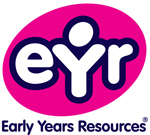
At Little Barn Owls Nursery and Farm School, which is located on a working farm, children have access to a one-acre garden; an allotment; a forest school programme; a ‘farm school’ with pigs, chickens, ducks, rabbits, guinea pigs and quails; and two purpose-built art studios, each staffed by a permanent artist-in-residence.
Underpinning its practice is a set of strong values, as well as a commitment to creativity and outdoor learning. Every child is viewed as full of potential and ‘capable of constructing their own knowledge and skills’ by engaging in ‘meaningful and respectful relationships with other children and adults’.
The nursery has found inspiration in the pedagogy of Reggio Emilia pre-schools, so adopts an enquiry-based approach to learning and strives to provide a child-centred and inspiring environment that is valued as ‘an important educator in the knowledge-building process’.
Particular attention is paid to children’s social, emotional and physical development. This is reflected in the nursery’s efforts to build strong relationships with the children and their families and in such physical aspects of the environment as a large construction area, a challenging climbing stack and ‘a baby and toddler garden’.
The nursery says its environment has brought about improved outcomes for children in three main areas: respect, creativity and risk.
Handling animals at Farm School and tending vegetables in the allotment encourage children to respect their environment. Meanwhile, the attention given to creating a beautiful nursery, along with a culture of respect among staff, shows the children that they are valued and, in turn, encourages them to respect each other.
Creatively, the children find enormous inspiration in working with the artists-in-residence in the nursery’s two art studios (ateliers) – one focusing on art materials, the other on the creative use of ICT. In a landscapes project, for example, children were able to view images of paintings, then photograph landscapes and create their own 3D models. Also providing inspiration are well-displayed supplies of open-ended recycled and natural materials.
In tackling ‘risk’, the nursery makes its environment as safe as possible and takes the view that ‘a hazard is something a child can’t see; a risk is a challenge a child can see and chooses to undertake’. Parents have reported high levels of confidence in their children as a result.
Highly commended
Dukes and Duchesses,
Liverpool
Since opening in 2003, Dukes and Duchesses, a 78-place nursery in the heart of Liverpool, has become a beacon of best practice. In its 2015 Ofsted inspection, it was awarded outstanding in all areas, while its local authority has identified it as one of four ‘hubs of good practice’.
Its success stems from regular investment in training and resources, coupled with a cycle of continuous reflection on its environment and practice. For the past two years, it has undertaken an action research project, which has transformed its learning spaces both inside and out. Changes introduced include softer lighting, smaller spaces, a more welcoming entrance, more floor space, more links with children’s homes and a less formal dress code.
The nursery also works in partnership with local schools and is a member of the multi-professional steering group at Edgehill University.
Finalists
Acorn Day Nursery, Burton Latimer, Northamptonshire
Nature to Nurture, Liverpool
Sunbeams Day Nursery, Leeds
Criterion
Open to early years settings that have developed elements of their provision to create stimulating, child-centred learning environments in line with the principles of the EYFS
Sponsored by

